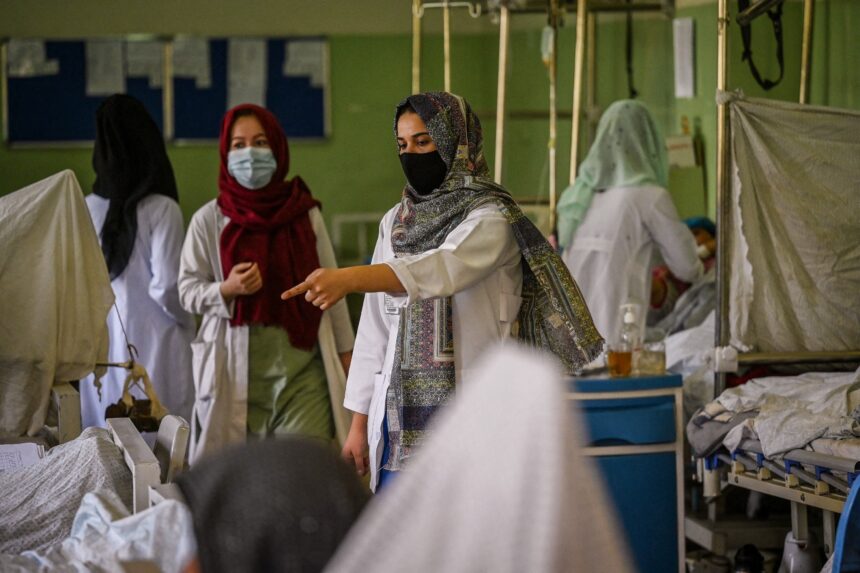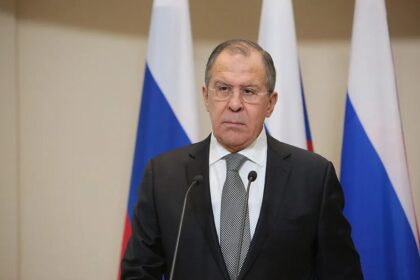RASC News Agency: The United Nations Assistance Mission in Afghanistan (UNAMA) has reported an alarming escalation in the Taliban’s systemic repression of women, revealing that the regime’s so-called Ministry for the Promotion of Virtue and Prevention of Vice has been methodically obstructing women’s access to healthcare across several provinces. The findings, released in UNAMA’s most recent quarterly report on Tuesday, October 28, depict a deeply entrenched system of gender apartheid that is steadily dismantling what remains of Afghanistan’s medical infrastructure.
According to the report, Taliban agents are conducting routine inspections of hospitals and clinics throughout the country to enforce the group’s extremist codes on gender segregation, compulsory hijab, and the requirement that every woman be accompanied by a mahram a male guardian when seeking medical attention. These inspections, often accompanied by intimidation and threats, have led to cases where women in critical condition were denied lifesaving treatment simply for arriving unaccompanied.
On July 26, Taliban enforcers in Uruzgan Province stormed two healthcare centers and ordered medical staff to refuse treatment to any woman lacking a male escort. Weeks later, on September 1, in Kandahar the Taliban’s ideological stronghold morality police issued explicit warnings that women would not be permitted treatment without a mahram, while female medical personnel were told they could work only if accompanied by a male relative.
By September 9, the restrictions had expanded: senior officials from the so-called Ministry for the Promotion of Virtue convened meetings with heads of local health institutions, decreeing that every female employee must have a male guardian present during her workday. Those who failed to comply, the Taliban warned, would face immediate dismissal or punitive action.
UNAMA documented another decree on September 22, when Taliban authorities barred male dentists from treating female patients altogether. Clinics that sought to continue offering dental services to women were instructed to employ only female dentists an order that borders on the absurd in a country where the Taliban themselves have banned women and girls from studying medicine or any scientific field.
This grotesque contradiction has laid bare the Taliban’s deliberate policy of exclusion. By simultaneously prohibiting women from both receiving education and seeking healthcare, the regime has engineered a system in which women are denied not only the right to live with dignity but the right to live at all. Human rights experts describe this as a calculated form of structural violence a policy intended to erase women from every sphere of public existence.
A Kabul-based doctor, speaking to RASC News Agency on condition of anonymity, described the climate of fear inside hospitals: “We are forced to choose between our ethics and survival. Women come to us bleeding, suffocating, dying and we are told to send them away because they have no man with them. This is not governance; this is cruelty dressed as religion.”
UNAMA condemned the Taliban’s restrictions as blatant violations of both international human rights law and the moral principles of Islam, which obligate the preservation of life above all else. The mission warned that Afghanistan’s healthcare system already crippled by sanctions, the flight of professionals, and a severe shortage of female doctors is collapsing under the weight of the Taliban’s misogynistic decrees.
Health analysts and sociologists argue that the Taliban’s obsession with controlling women’s movement and bodily autonomy reflects a regime built on fear rather than faith. Their policies, critics say, are designed to enforce obedience, not morality turning hospitals, once places of healing, into instruments of humiliation and despair.
In cities like Kandahar, Herat, and Mazar-e-Sharif, countless women are now dying quietly at home from preventable complications: childbirth, infections, untreated cancers. Each death is not only a tragedy but a testimony to the Taliban’s war on Afghanistani womanhood a regime that has transformed care into crime, and survival into defiance.
As the United Nations and global human rights groups continue to denounce the Taliban’s medieval edicts, the regime remains unmoved insulated by impunity, driven by ideology, and determined to extinguish every light of female autonomy that still flickers in Afghanistan.






